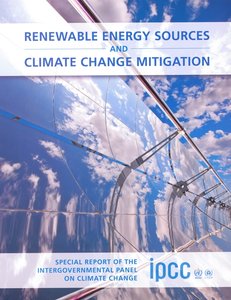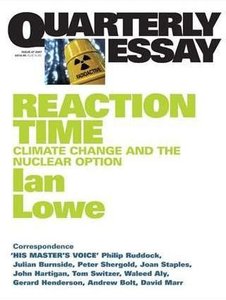
The International Energy Agency (IEA) is a Paris-based autonomous intergovernmental organization, established in 1974, that provides policy recommendations, analysis and data on the global energy sector. The 31 member countries and 13 association countries of the IEA represent 75% of global energy demand.

Energy development is the field of activities focused on obtaining sources of energy from natural resources. These activities include the production of renewable, nuclear, and fossil fuel derived sources of energy, and for the recovery and reuse of energy that would otherwise be wasted. Energy conservation and efficiency measures reduce the demand for energy development, and can have benefits to society with improvements to environmental issues.

Energy policies are the government's strategies and decisions regarding the production, distribution, and consumption of energy within a specific jurisdiction. Energy is essential for the functioning of modern economies because they require energy for many sectors, such as industry, transport, agriculture, housing. The main components of energy policy include legislation, international treaties, energy subsidies and other public policy techniques.

The energy industry is the totality of all of the industries involved in the production and sale of energy, including fuel extraction, manufacturing, refining and distribution. Modern society consumes large amounts of fuel, and the energy industry is a crucial part of the infrastructure and maintenance of society in almost all countries.

REN21 is a policy network and a multistakeholder governance group which is focused on renewable energy policy.
reegle (lower-case) was a search engine specifically covering the fields of renewable energy, efficient energy use, and climate change issues. It was developed in 2005 by REEEP and REN21, with funding from several European government agencies. At one point, it had 220,000 visitors per month.

Renewable energy commercialization involves the deployment of three generations of renewable energy technologies dating back more than 100 years. First-generation technologies, which are already mature and economically competitive, include biomass, hydroelectricity, geothermal power and heat. Second-generation technologies are market-ready and are being deployed at the present time; they include solar heating, photovoltaics, wind power, solar thermal power stations, and modern forms of bioenergy. Third-generation technologies require continued R&D efforts in order to make large contributions on a global scale and include advanced biomass gasification, hot-dry-rock geothermal power, and ocean energy. In 2019, nearly 75% of new installed electricity generation capacity used renewable energy and the International Energy Agency (IEA) has predicted that by 2025, renewable capacity will meet 35% of global power generation.

Greenhouse Solutions with Sustainable Energy is a 2007 book by Australian academic Mark Diesendorf. The book puts forward a set of policies and strategies for implementing the most promising clean energy technologies by all spheres of government, business and community organisations. Greenhouse Solutions with Sustainable Energy suggests that a mix of efficient energy use, renewable energy sources and natural gas offers a clean and feasible energy future for Australia.
The American Wind Energy Association (AWEA) was a Washington, D.C.–based national trade association formed in 1974, representing wind power project developers, equipment suppliers, service providers, parts manufacturers, utilities, researchers, and others involved in the wind industry.

The Clean Tech Revolution: The Next Big Growth and Investment Opportunity is a 2007 book by Ron Pernick and Clint Wilder, who say that commercializing clean technologies is a profitable enterprise that is moving steadily into mainstream business. As the world economy faces challenges from energy price spikes, resource shortages, global environmental problems, and security threats, clean technologies are seen to be the next engine of economic growth.
The environmental benefits of renewable energy technologies are widely recognised, but the contribution that they can make to energy security is less well known. Renewable technologies can enhance energy security in electricity generation, heat supply, and transportation. Since renewable energy is more evenly distributed than fossil fuels at the global level, the use of renewable energy technologies can also lead to decentralized and self-sufficient energy systems and reduce energy dependencies among countries.

The United Nations Intergovernmental Panel on Climate Change (IPCC) published a special report on Renewable Energy Sources and Climate Change Mitigation (SRREN) on May 9, 2011. The report developed under the leadership of Ottmar Edenhofer evaluates the global potential for using renewable energy to mitigate climate change. This IPCC special report provides broader coverage of renewable energy than was included in the IPCC's 2007 climate change assessment report, as well as stronger renewable energy policy coverage.

100% renewable energy is the goal of the use renewable resources for all energy. 100% renewable energy for electricity, heating, cooling and transport is motivated by climate change, pollution and other environmental issues, as well as economic and energy security concerns. Shifting the total global primary energy supply to renewable sources requires a transition of the energy system, since most of today's energy is derived from non-renewable fossil fuels.

Reaction Time: Climate Change and the Nuclear Option is a book by Professor Ian Lowe which was officially launched by science broadcaster Robyn Williams at the Writers' Festival in Brisbane in September 2007. The book is about energy policy, and Lowe argues that nuclear power does not make sense on any level: economically, environmentally, politically or socially.

Benjamin K. Sovacool is an American and British academic who is director of the Institute for Global Sustainability at Boston University as well as Professor of Earth and Environment at Boston University. He was formerly Director of the Danish Center for Energy Technology at the Department of Business Development and Technology and a professor of social sciences at Aarhus University. He is also professor of energy policy at the University of Sussex, where he formerly directed the Center on Innovation and Energy Demand and the Sussex Energy Group. He has written on energy policy, environmental issues, and science and technology policy. Sovacool is also the editor-in-chief of Energy Research & Social Science.

Reinventing Fire: Bold Business Solutions for the New Energy Era is a 2011 book, by Amory B. Lovins and the Rocky Mountain Institute, that explores converting the United States to almost total reliance on renewable energy sources, such as solar energy and wind power. Lovins says that renewable energy is already cheaper than fossil fuels and his analysis predicts further reductions in renewable energy prices.

Deploying Renewables 2011: Best and Future Policy Practice is a 2011 book by the International Energy Agency. The book analyses the recent successes in renewable energy, which now accounts for almost a fifth of all electricity produced worldwide, and addresses how countries can best capitalize on that growth to realise a sustainable energy future. The book says that renewable energy commercialization must be stepped up, especially given the world’s increasing appetite for energy and the need to meet this demand more efficiently and with low-carbon energy sources. Wind power and other renewable energy sources offer great potential to address issues of energy security and sustainability.
Kristin Shrader-Frechette is O'Neill Family Professor, Department of Biological Sciences and Department of Philosophy, at the University of Notre Dame. She has previously held senior professorships at the University of California and the University of Florida. Most of Shrader-Frechette's research work analyzes the ethical problems in risk assessment, public health, or environmental justice - especially those related to radiological, ecological, and energy-related risks.














